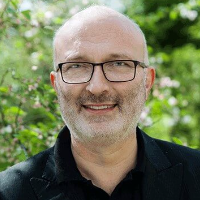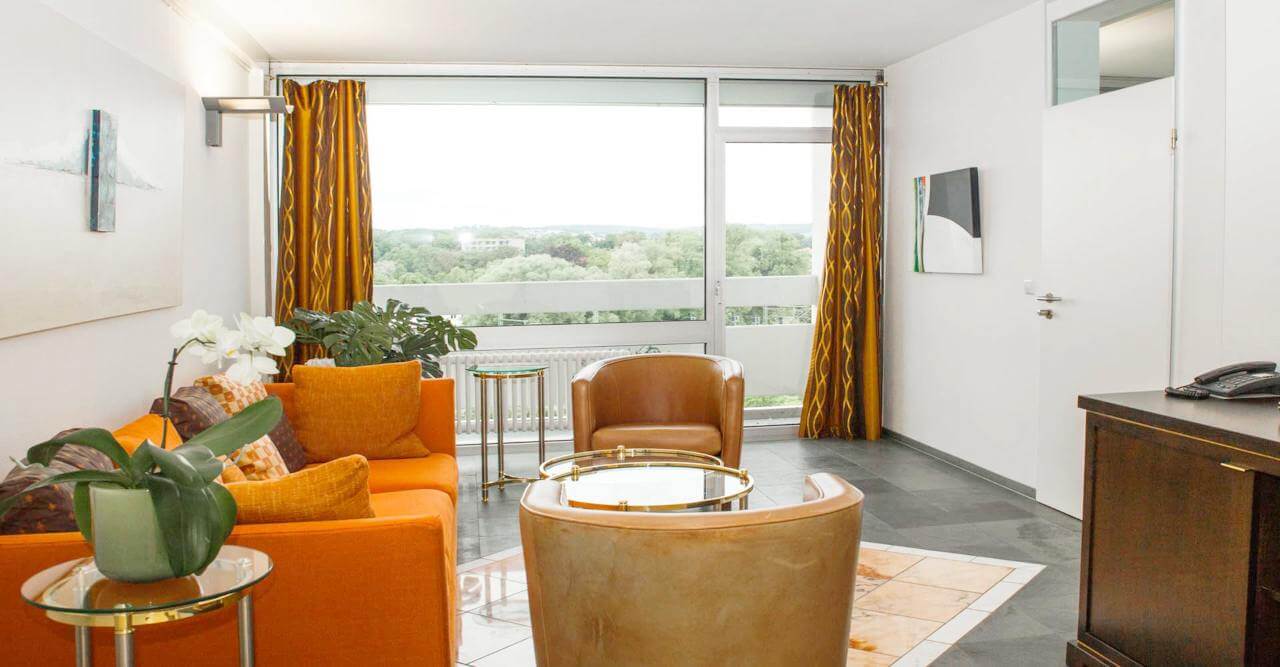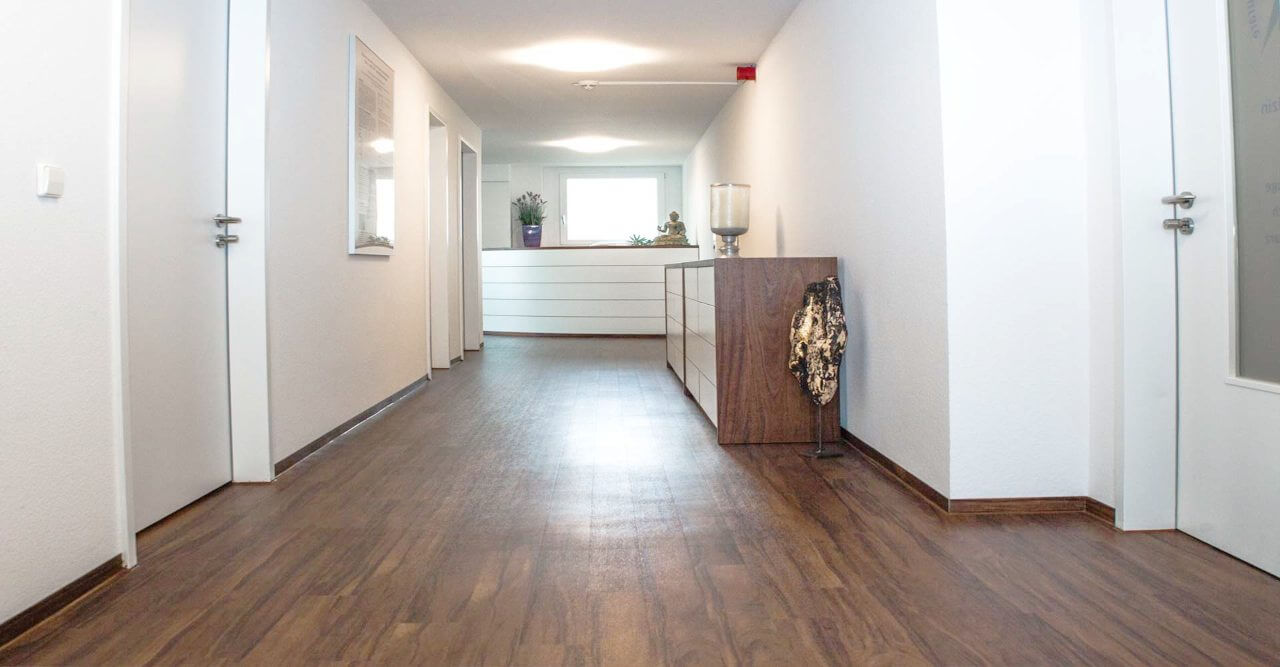
The program includes:
- Initial presentation in the clinic
- Clinical history taking
- General clinical examination
- Laboratory tests:
- Complete blood count
- Liver and kidney function tests
- Other tests, if indicated
- Blood sampling and manufacturing an individual vaccine
- Dendritic cells immunotherapy LANEX-DC
- Symptomatic treatment
- Cost of essential medicines
- Consultations of related specialists (if indicated)
- Nursing services
- Control examinations
- Recommendations regarding further treatment
Indications
- Advanced cancer, in addition to standard treatments
- Advanced cancer with no response to standard treatments
How program is carried out
During the first visit, the physician will carry out a general physical examination, study the results of your examinations, evaluate the results of the treatment already performed. After that, you will undergo the necessary additional tests such as the complete blood count, assessment of liver and kidney function, etc.
Dendritic cells immunotherapy LANEX-DC:
- Taking about 150-200 ml of blood (the volume depends on the weight of the patient).
- Isolation of immature progenitor cells for growing dendritic cells in the laboratory. The laboratory of the Department is certified in accordance with the requirements of the EU-GMP. It takes dendritic cells 7 days to become mature.
- Evaluation of the number of mature dendritic cells and their viability using a flow cytometer.
- Repeated cleaning mature dendritic cells, removing non-viable cells.
- Subcutaneous injection of dendritic cells into the inguinal region or the area of lymphatic collectors close to the tumor.
- Intravenous drip of vitamin preparations, symptomatic therapy.
You can leave the hospital right after the follow-up medical examination. The physician will give you detailed recommendations, as well as determine a plan for further follow-up and treatment.
Required documents
- Medical records
Service
You may also book:
 BookingHealth Price from:
BookingHealth Price from:
About the department
The Department of Oncology and Dendritic Cell Therapy offers comprehensive cancer treatment services, including dendritic cell therapy, chemotherapy, radiation therapy, and supportive care. They specialize in personalized treatment plans to optimize outcomes.
This department stands out due to its focus on cutting-edge dendritic cell therapy and personalized treatment approaches. Their team of experts collaborates closely to provide innovative and effective cancer care, utilizing the latest research and technology.
International patients can receive treatment through Booking Health, which facilitates the entire process from initial consultation to treatment and follow-up care. Services include appointment scheduling, travel arrangements, and translation support.
The department treats various types of cancer, including melanoma, prostate cancer, lung cancer, breast cancer, and glioblastoma. Their multidisciplinary team ensures comprehensive care tailored to each patient's needs.
The success rate varies depending on the type and stage of cancer, as well as individual factors. However, many patients have reported significant improvements in their condition and quality of life, with some achieving long-term remission.
The Department of Oncology and Dendritic Cell Therapy at the LDG Laboratories Dr. Gansauge Berg specializes in treating various cancers by harnessing the immune system's power through innovative therapies. The medical team uses advanced imaging techniques to assess tumor markers and myeloid cell function, allowing for precise diagnosis and treatment planning. The key focus of the work of the department's doctors is advanced LANEX-DC® dendritic cell immunotherapy. Today, the medical facility is one of the world's leading providers of dendritic cell therapy. The department most often admits patients with skin, breast, prostate, pancreatic, kidney, colon, ovarian, etc. cancers. Prior to starting treatment, a patient undergoes comprehensive diagnostics, based on the results of which doctors determine the advisability of cell therapy. Dendritic cell immunotherapy is indicated for patients with advanced cancer who are not responding to standard treatment with chemotherapy, radiation therapy, and other classical methods. Treatment is carried out on an outpatient basis. More than 2,500 LANEX-DC® immunotherapy procedures have been successfully performed in the department, which contributes to the high credibility of the medical facility in this area. The department regularly admits many patients from abroad who want to undergo innovative treatment that is not available in their native country.
The department is headed by Prof. Dr. med. Frank Gansauge, who is one of the few experienced specialists in the field of dendritic cell treatment worldwide. The doctor is also actively engaged in research activities and regularly publishes the results of his work.
Today, dendritic cell immunotherapy is one of the most progressive methods in the fight against cancer. Dendritic cell therapy works by activation of these cells to enhance immunogenicity, potentially improving prognosis and symptoms at a competitive cost. The benefits of this approach include a potentially higher response rate and reduced side effects compared to traditional treatments, though individual results may vary based on specific tumor characteristics, antibody profiles, etc.
The essence of the treatment is the preparation of an individual vaccine based on the patient's own dendritic cells and its injection into his body. After entering the body, modified dendritic cells stimulate the human immune system, ensuring the destruction of cancer foci. LANEX-DC® immunotherapy is a last-line treatment that is started after a standard therapeutic protocol with surgery, chemotherapy, and/or radiation therapy. In the advanced stages of cancer, it is not always possible to achieve a good result using these methods. Therefore, if the classical treatment is unsuccessful, the patient can undergo dendritic cell therapy, whose high effectiveness has been proven in many clinical trials.
Immunotherapy begins with taking about 200 mL of blood. Immature dendritic precursor cells are isolated from the collected blood under laboratory conditions. The precursor cells are then placed in a laboratory incubator, where they multiply and mature under the influence of nutrient solutions and growth factors. At the initial stages of maturation, autologous tumor antigens obtained from the tumor tissue are added to precursor cells. The duration of the maturation of dendritic cells in a laboratory incubator is 7 days. On the 7th day, the department's specialists assess the number of mature dendritic cells and their viability using a flow cytometer, after which several purification procedures for mature dendritic cells are performed. The dendritic cells are then placed in two small syringes, and the physician injects the resulting vaccine subcutaneously into the groin area. After the completion of the procedure, the patient receives vitamin infusions and can leave the department on the day of the LANEX-DC® immunotherapy.
Upon entering the patient's body, dendritic cells move to the lymph nodes, where they activate killer cells (cytotoxic T lymphocytes), which have the ability to destroy malignant cells. Activated T killers "remember" the characteristics of the tumor and spread through the patient's body in the bloodstream in search of malignant cells to be destroyed. This is how a therapeutic effect is achieved.
It is worth noting that the department's laboratory for growing dendritic cells is certified in accordance with the requirements of the EU-GMP. In addition, the department's doctors work in the only laboratory in the world where the obtained cells are not frozen. It is thus possible to preserve all the useful properties of precursor cells, from which dendritic cells are subsequently obtained, which is not always possible with freezing.
The main advantages of dendritic cell therapy are its good tolerability, absence of side effects, and high efficiency. LANEX-DC® immunotherapy is also perfectly combined with other treatment methods, including chemotherapy and radiation therapy. Moreover, the department's specialists recommend using this treatment in combination with other classical methods of fighting cancer. The department's doctors achieve the best results when treating melanoma and ovarian cancer. In patients with pancreatic cancer, dendritic cell immunotherapy significantly increases life expectancy (up to 12 months or more). LANEX-DC® immunotherapy also shows excellent results in colon cancer.
The department's doctors are true professionals in their field and are deservedly proud of their unique experience in cancer treatment with dendritic cells. The specialists make sure that each patient receives effective treatment and has a high quality of life after the completion of therapy. Before dendritic cell vaccination, the patient receives full information about the upcoming treatment course and the predicted result. The goal of each member of the department's medical team is to give a patient with cancer, which in the recent past was considered incurable, the opportunity to undergo advanced treatment that will result in recovery or long-term remission.
The department specializes in the diagnostics and treatment of the following oncological diseases:
- Skin cancer
- Kidney cancer
- Breast cancer
- Ovarian cancer
- Prostate cancer
- Pancreatic cancer
- Colon cancer
- Other malignant diseases
The stages of LANEX-DC® dendritic cell immunotherapy are as follows:
- Stage 1: taking about 200 ml of blood
- Stage 2: isolation of immature precursor cells for growing dendritic cells under laboratory conditions (the maturation of dendritic cells takes 7 days)
- Stage 3: assessment of the number of mature dendritic cells and their viability using a flow cytometer
- Stage 4: several procedures for cleaning mature dendritic cells
- Stage 5: placement of dendritic cells in two small syringes and their follow-up injection into the groin area (a subcutaneous injection)
- Stage 6: vitamin infusions and discharge from the clinic
Curriculum vitae
Prof. Dr. med. Frank Gansauge is the Head of the LDG Laboratories Dr. Gansauge Berg and the Head Physician of the Department of Oncology and Dendritic Cell Therapy at this clinic.
Prof. Gansauge received his medical education at the University of Tuebingen in Germany. He also studied medicine in Cardiff, England.
From 1992 to 1999, he worked as an Assistant Physician in the Department of Surgery at the University Hospital Ulm. This was followed by the positions of Senior Physician and Head of the Day Hospital and Research Laboratory at the same hospital (for 2 years).
In 2000, the doctor had his habilitation in the field of Oncology at Ulm University. In 2002, he founded the LDG Laboratories Dr. Gansauge Berg.
Dr. Frank Gansauge is a Visiting Professor at the Liaoning University of Technology in China, a Visiting Professor at the Faculty of Medicine at the University of Belgrade in Serbia, and a Professor at the Shanxi Medical University in China.
Prof. Gansauge is the author of over 160 scientific publications and numerous book chapters. He has also been the winner of prestigious awards, including the Fred Stephans Award and the Merckle Research Award.
Photo of the doctor: (c) LDG Laboratories Dr. Gansauge GmbH
About hospital
The LDG Laboratories Dr. Gansauge Berg is an advanced medical facility specializing in innovative LANEX-DC® dendritic cell immunotherapy. This type of immunotherapy is highly effective and allows for excellent results even in the advanced stages of the oncological process. The clinic is one of the few in all of Europe whose doctors have unique competencies and skills in the use of dendritic cells. Treatment success rates are at the highest level, which attracts many patients from various parts of Germany and many foreign countries.
Dendritic cell vaccination is indicated for the treatment of various types of cancer, including malignant tumors of the skin, kidney, breast, prostate, pancreas, bowel, ovaries, and other organs. The therapeutic effect is achieved by activating the person's own immune system. After the injection of an individually created dendritic cell-based vaccine into the patient's body, the immune system begins to specifically target tumor foci to destroy them. Since this type of treatment is innovative, its availability is limited, even in developed countries. More than 2,500 LANEX-DC® dendritic cell immunotherapy procedures have been performed at the LDG Laboratories Dr. Gansauge Berg. Patients can therefore be confident in the professionalism of the doctors at the medical center and count on the best treatment outcome.
Dendritic cell immunotherapy is indicated for patients who have undergone a standard course of treatment, including surgery, chemotherapy, and/or immunotherapy, but have not received the desired result. In addition to its high efficiency, dendritic cell therapy has another significant advantage, which is that it practically does not cause any side effects. As a rule, treatment takes place on an outpatient basis without mandatory hospitalization.
The clinic's medical team is focused on providing each patient with high-quality medical care in comfortable conditions. The specialists always devote enough time to personal communication with patients, explaining to them the principle of action of dendritic cell immunotherapy and predicting the expected treatment outcomes. The doctors at the clinic show understanding towards patients and their life situations, trying to morally support a person and give him hope for a successful treatment outcome.
Photo: (c) LDG Laboratories Dr. Gansauge GmbH
Accommodation in hospital
Hotel
You may stay at the hotel of your choice during the outpatient program. Our managers will support you in selecting the best option.




